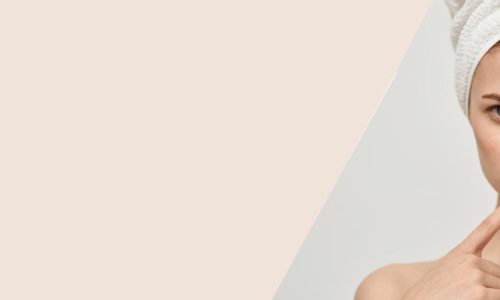- +91-8100 600400 / +91 1244368762
Acne Treatment In Gurgaon
- Home
- Acne Treatment In Gurgaon
Acne Treatment In Gurgaon, Delhi NCR | Acne Treatment Cost In India
Dr. Preeti Yadav provides the best Acne Treatment In Gurgaon, Delhi NCR, Rewari, Bhiwadi, Pataudi, India. Acne is a common skin condition that occurs when hair follicles become clogged with oil, dead skin cells, and bacteria. It often manifests as pimples, blackheads, whiteheads, cysts, and nodules and can appear on the face, neck, chest, back, and shoulders. Acne is most prevalent during adolescence due to hormonal changes, but it can affect people of all ages.
How Acne develop in your face?
Excess Oil Production (Sebum): Increased oil production by the sebaceous glands, stimulated by hormonal changes, can lead to the clogging of hair follicles. This excess oil can mix with dead skin cells, forming a plug in the follicles.
Hair Follicle Clogging: Dead skin cells shed continuously, and when they mix with excess sebum, they can form a plug in the hair follicles. This plug can create an environment for the proliferation of acne-causing bacteria.
Bacteria: Hair follicles can become a breeding ground for bacteria, primarily Propionibacterium acnes (P. acnes). These bacteria contribute to inflammation and the formation of red, swollen pimples.
Inflammation: When the hair follicles become inflamed due to the presence of bacteria and other factors, it results in the characteristic red and swollen appearance of acne lesions.
Improve Your Appearance With
Acne Treatment In Gurgaon, Delhi NCR
VARIOUS AGGRAVATING FACTORS FOR ACNE INCLUDE:
Several factors can development or exacerbation of acne. While the exact cause of acne is multifactorial and can vary from person to person, here are some common aggravating factors:
- Hormonal Changes
- Adolescence
- Menstrual Cycle
- Excess Oil Production
- Bacterial Growth
- Genetics
- Dietary Factors
- Cosmetic Products
- Medications
- Environmental Factors
- Friction and Pressure
- Poor Skincare Habits
 Rakesh Kumar2023-11-01Good place to consult for your treatment. Best Plastic Surgeon In Gurgaon, Sector 57.
Rakesh Kumar2023-11-01Good place to consult for your treatment. Best Plastic Surgeon In Gurgaon, Sector 57. Chitra2023-11-01Very thankfully Dr Preeti . extremely friendly staff.Best Plastic Surgeon & Cosmetic Surgeon In Gurgaon, Sector 57, Dlf Phase 5.very clean and well presented konarc aesthetics with excellent facilities.i am very great full for the visit thank you
Chitra2023-11-01Very thankfully Dr Preeti . extremely friendly staff.Best Plastic Surgeon & Cosmetic Surgeon In Gurgaon, Sector 57, Dlf Phase 5.very clean and well presented konarc aesthetics with excellent facilities.i am very great full for the visit thank you Tanya Arora2023-11-01Dr. Preeti Yadav is very supportive and suggest well. Good surgeon known from past 12 years. One of the best Plastic Surgeon In Gurgaon, Sector 57.She listens to you very patiently & gives you sufficient time to say your problems. I personally recommend her for all aesthetic and reconstructive surgeries.
Tanya Arora2023-11-01Dr. Preeti Yadav is very supportive and suggest well. Good surgeon known from past 12 years. One of the best Plastic Surgeon In Gurgaon, Sector 57.She listens to you very patiently & gives you sufficient time to say your problems. I personally recommend her for all aesthetic and reconstructive surgeries. Rihah Singh2023-11-01Recently had Botox treatment in my forehead and result but better than expected. Dr Preeti yadav is best Botox & Fillers In Gurgaon, Sector 57.
Rihah Singh2023-11-01Recently had Botox treatment in my forehead and result but better than expected. Dr Preeti yadav is best Botox & Fillers In Gurgaon, Sector 57. Manthan Bawa2023-10-22Best plastic surgeon, full of compassion.
Manthan Bawa2023-10-22Best plastic surgeon, full of compassion. GURU BUMPER2023-10-22Very polite and gentle dr. I visited her for my after surgery scar and those faded very smoothly.
GURU BUMPER2023-10-22Very polite and gentle dr. I visited her for my after surgery scar and those faded very smoothly. Sunny arora2023-10-22She is just fantastic. My hair transplant treatment was done by her. And I am personally I love with my hairs now.
Sunny arora2023-10-22She is just fantastic. My hair transplant treatment was done by her. And I am personally I love with my hairs now. Ranju Arora2023-10-21She treated my wrinkled face and lift it, very satisfactory result. I am very happy.
Ranju Arora2023-10-21She treated my wrinkled face and lift it, very satisfactory result. I am very happy. Anil Kumar Arora2023-10-19She is one of the best Dr. I have met. She boost my confidence. Thanks Dear Doc.
Anil Kumar Arora2023-10-19She is one of the best Dr. I have met. She boost my confidence. Thanks Dear Doc. Ramesh Khatri2023-10-19She is one of the best plastic surgeon I have personally met.Google rating score: 5.0 of 5, based on 74 reviews
Ramesh Khatri2023-10-19She is one of the best plastic surgeon I have personally met.Google rating score: 5.0 of 5, based on 74 reviews
Before & After Treatments
Dr. Preeti Yadav center follows advance plastic surgery procedure If there is a defect on the soul, it cannot be corrected in the face; but if there is a defect on face and one corrects it, it can correct a soul.
Book Appointment with the best Acne Treatment In Gurgaon, Delhi NCR. Today! Experts Consultation Guaranteed.
Types of Acne Treatment In Gurgaon
There are two main types of acne scars one is depressed acne scar and another is raised acne scar.
Depressed Acne Scar – Depressed Acne Scar are deep-pitted scars and they are the most common kind of acne scars which is caused by inflammatory acne. It is further classified into three types of acne such as follows:
- Rolling scars – They are broadened pits lies on the skin and have rounded edges. The texture of the scars is rough and it can cause severe damage beneath the surface of the skin.
- Boxcar scars – Boxcar scars are quite similar with the rolling scars in terms of its depth and depression, but they are more defined and have strong edges.
- Ice Pick scars – Ice Pick scars are the most different one, instead of being broad they are tiny like dot depressions. But it is quite tough for the dermatologist to treat it because of its depth and depression.
Raised Acne Scar – These scars are not like depressed scars, in fact they are more prominent than depressed ones. It requires a tough treatment procedure. In terms of its look, they look like the small and big bump. It is also further divided into two common types of raised acne scars such as follows:
- Keloid Scars – When excess collagen and extra scar tissues forms on the skin then it triggers a scar on the surface. The collagen appears around the acne scar and it grows in the same size.
- Hypertrophic Scars – The presence of excess collagen enables the hypertrophic scars to appear on the skin and its intensity is less severe than of Keloid scars. It appears reddish in color and not prominent as Keloids.
Common treatments for acne scars in Gurgaon
Acne Treatment depends on the type and severity of the scars. There are various options available, and a dermatologist can recommend the most suitable approach based on individual factors. Here are common treatments for acne scars:
Topical Treatments:
- Retinoids: Prescription-strength retinoids, such as tretinoin, can help improve the texture of the skin and promote collagen production, reducing the appearance of certain types of scars.
- Topical Vitamin C: Vitamin C can help brighten the skin and promote collagen synthesis, potentially improving the appearance of acne scars.
Chemical Peels:
- Superficial Peels: Mild chemical peels, such as those containing alpha hydroxy acids (AHAs) or beta hydroxy acids (BHAs), can help exfoliate the skin’s outer layer, improving the appearance of mild scars.
- Medium to Deep Peels: Stronger chemical peels, such as those containing trichloroacetic acid (TCA), can penetrate deeper layers of the skin and may be used for more severe scarring.
Microneedling (Dermaroller or Dermapen):
- Microneedling involves the use of tiny needles to create controlled micro-injuries in the skin, stimulating collagen production and promoting skin renewal. It can be effective for improving the texture of acne scars.
Laser Therapy:
- Fractional Laser Therapy: This treatment delivers laser energy in fractions to the skin, promoting collagen remodeling and improving the appearance of scars.
- Non-Ablative Laser: Lasers that stimulate collagen production without removing the outer layer of skin can be used for milder scars.
Dermal Fillers: Injectable fillers, such as hyaluronic acid, can be used to temporarily fill in depressed scars, providing a smoother appearance.
Consult with a dermatologist to determine the most appropriate treatment for specific acne treatment. The effectiveness of treatments can vary based on factors such as scar type, skin type, and individual response to the chosen therapy.
Dr Preeti Yadav will make you smile when you look yourself in mirror!!
YOU WANT TO KNOW HOW?
What causes acne?
Acne is primarily caused by a combination of factors, including excess oil production, clogged hair follicles, bacteria (particularly Propionibacterium acnes), hormonal changes, and inflammation.
Are there different types of acne?
Yes, acne can manifest in various types of lesions, including blackheads, whiteheads, papules, pustules, nodules, and cysts.
How can I prevent acne?
- Maintain a consistent skincare routine with gentle cleansers.
- Avoid using harsh products that may irritate the skin.
- Keep the skin moisturized, even if it's oily.
- Avoid excessive sun exposure and use sunscreen.
- Don't pick or squeeze acne lesions.
How are acne scars treated?
Treatment options for acne scars include:
- Chemical peels
- Microneedling
- Laser therapy
- Dermal fillers
- Subcision
- Punch excision or punch grafting
Can I wear makeup if I have acne?
Yes, but choose non-comedogenic and oil-free products. Remove makeup before bedtime and ensure proper cleansing.
Can I get rid of acne overnight?
While it's unlikely to completely eliminate acne overnight, some spot treatments containing ingredients like benzoyl peroxide or salicylic acid may help reduce the appearance of individual pimples.
How long does it take for acne treatments to work?
Timeline varies depending on the treatment and the individual's response. Improvement may be noticeable in a few weeks to several months.

